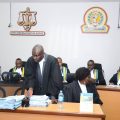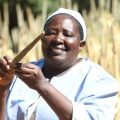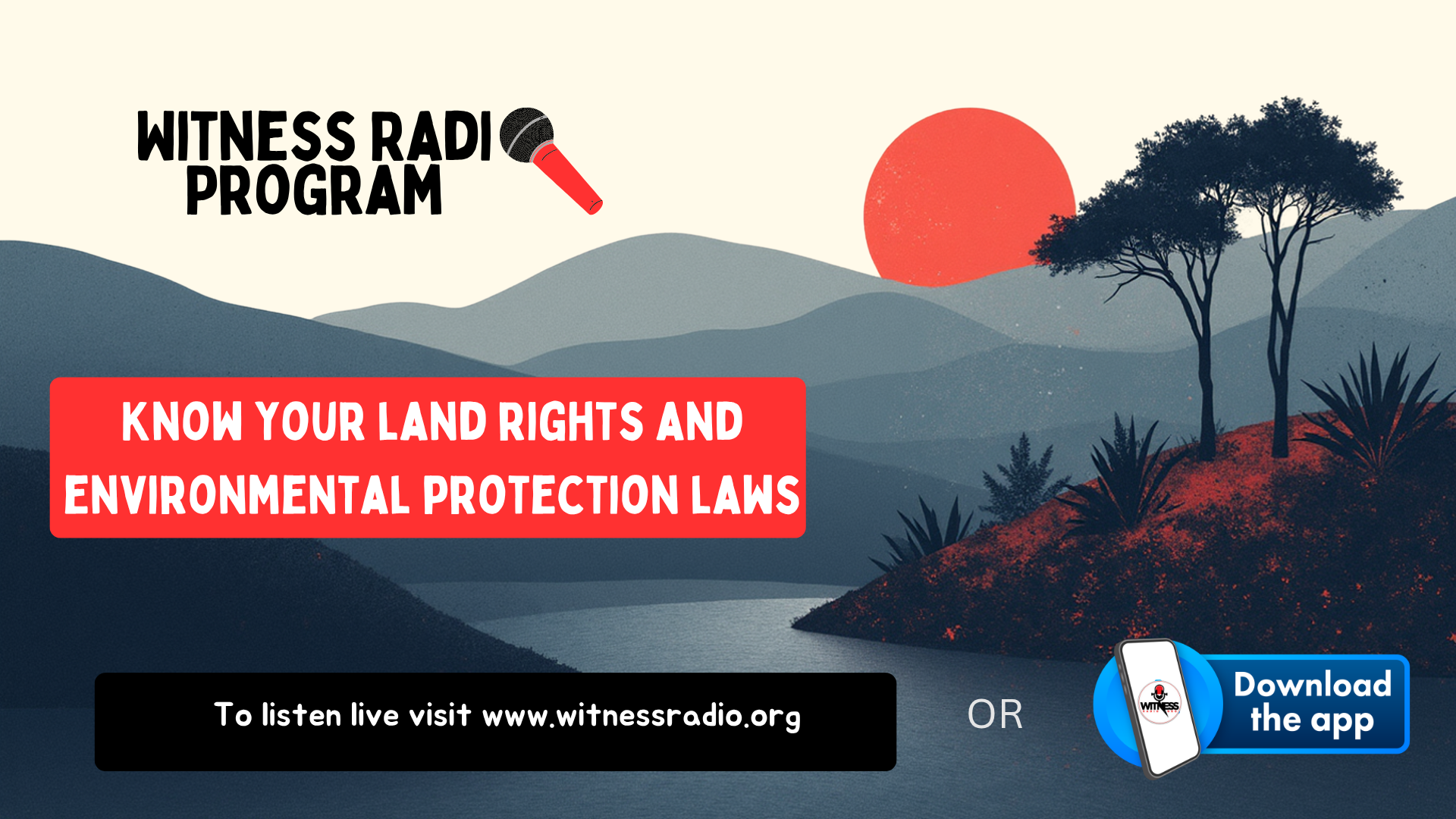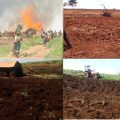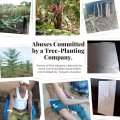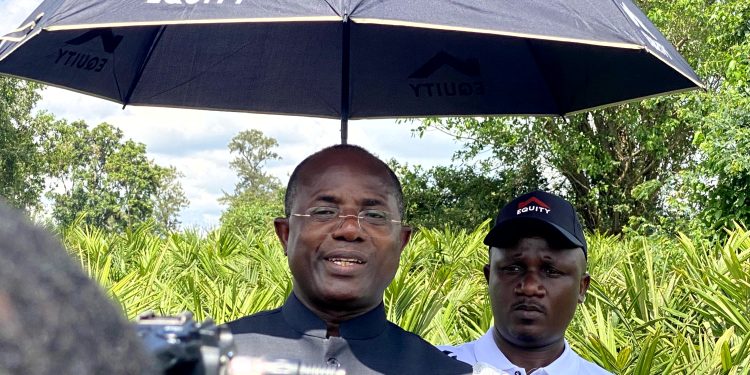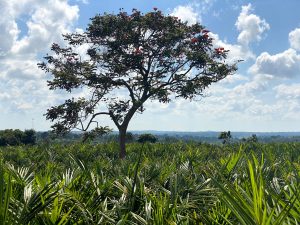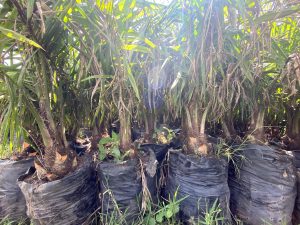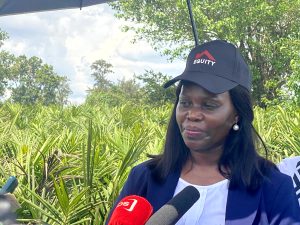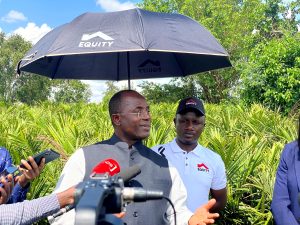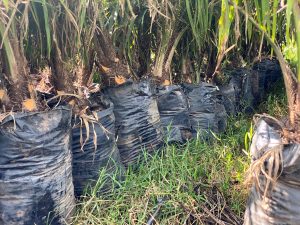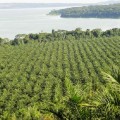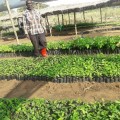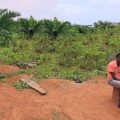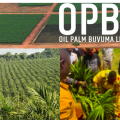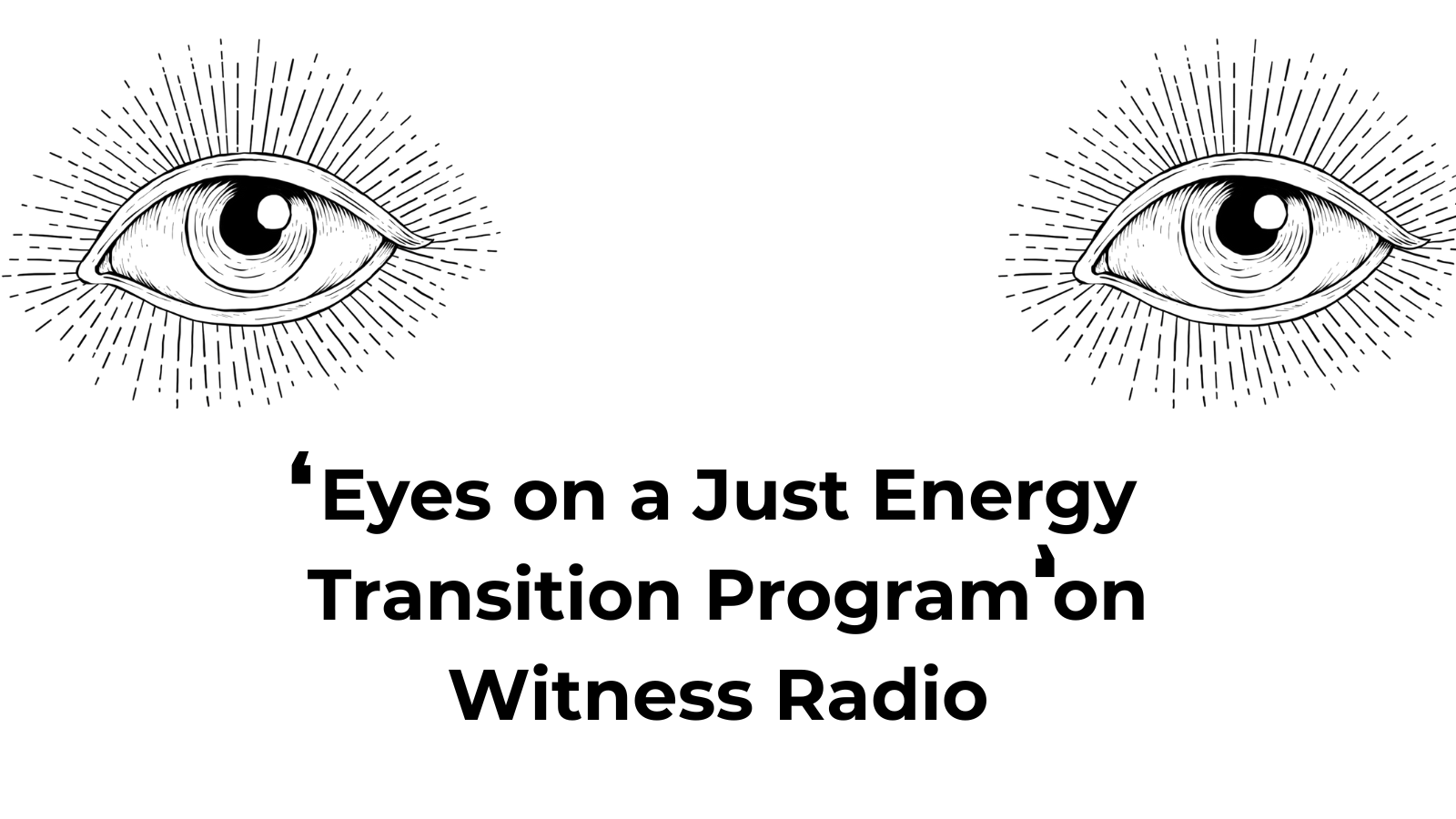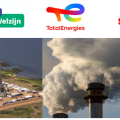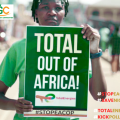By Witness Radio and Südnordfunk teams.
Thousands of people in Uganda are affected by the East African Crude Oil Pipeline (EACOP) project, which spans from the oil production towers and refineries to the pipeline’s route and extends to its final destination in Tanzania. The Ugandan government portrays it as a promising project for the country’s development, often labeling those who criticize it as agents of imperialism.
The French oil company Total Energies wants to build a pipeline in Uganda and Tanzania. EACOP project was first introduced in Nanywa ‘A’ village, Nanywa Parish, Ndagwe sub-county in Lwengo district in around 2018. Back then, hundreds of people hoped to benefit from it.
In several meetings conducted by Total to introduce the project to the affected communities, such as those in Lwengo District, the Total Energies team communicated that the project would offer enhanced support to vulnerable groups, including widows, the elderly, persons with disabilities, and orphans.
“Total often called us into their meetings, where they assured us that everyone would benefit from the project, with particular attention given to groups such as widows, orphans, and the elderly.” One of the affected residents, Mr. Katoogo Kasim, told Witness Radio.
Accordingly, the impacted communities mentioned that the project was highly hyped by its implementers as a pathway to development and wealth generation. But what turns out are regrets and curses from the would-be beneficiaries of the Eacop project. In areas where the project is passing, they claim it has exposed them to poverty, adversely affected their health, criminalized project critics, and greatly affected their social lives and cultures.
90-year-old Tereza Nakato (name changed) of Nanywa, a village nine kilometers from Lwengo town, suffers from high blood pressure. According to her, her health has been deteriorating daily since the project implementors expressed interest in her land. Before the project, she was living happily and enjoying her old village life.
“A lot has changed in my life ever since these oil people came and took my land. The pipeline now passes through my compound, just three meters from my house, and this has caused me to develop hypertension due to the constant stress of worrying about what might happen next,” the 90-year-old woefully revealed.
During our visit to her home, a brick-structured four-roomed house surrounded by a small farm of two cows and goats, she was still locked in her house by 9 am when we reached there. Next to her home is her son’s house, which is also on the same land. He, too, is affected by the EACOP. Due to her illness, the old widow could not speak much, so her son, Mr. Katoogo Kasim, assisted her in talking to us. The EACOP is supposed to pass right through her compound. The construction work has not yet begun, but signs of its beginning can be witnessed.
Katoogo Kasim told us that the pipeline is located just three meters from his mother’s house. The three meters between the pipeline and the house will be the compound, leaving her with no space to do her chores.
She (Nakato) worries that her house may be damaged due to heavy trucks and machines that will construct the pipeline, and the poor compensation stresses her. Along with other effects, it has worsened her health. For instance, her family has to spend more than 50 Euros every month on her medication – money she does not have. She received some compensation for the land taken for the project. But she says it was inadequate to improve her life. Instead, it is used up quickly by her sickness.
“This project is a disaster, bringing havoc to me and my family. It’s the time when my mother got sick, and all the money that was given to her as compensation was used up for her monthly Hypertension medication,” Kasim further said.
According to Nakato, initially, Total told her that she would be relocated elsewhere or that they would construct a new house. But these were empty promises well-intentioned to coerce her to surrender her land to the project. When she sought relocation or construction of a new home due to the imminent impact on her and her house after giving them her land, the project implementers told her that it must first get cracked or fall.
Nakato is not the only one to cry out about the impacts of the EACOP project on her land and home. Lawyer Brighton Aryempa is advising affected community members and representing some of them in court. In an interview with Südnordfunk, he, too, says that being displaced from their land is one of the significant impacts on the communities:
“Communities are suffering because they are being displaced from their ancestral land without compensation, and even when they pursue legal action. The court cases have dragged on for years, yet land is crucial for creating livelihoods for families and communities. This is happening despite laws outlining how land should be compensated when taken for public interest.” He said.
While the government is allowed to acquire land for public interest, the acquisition should follow due process. This has often been different for the EACOP project. He emphasizes that community members have the full right to demand adequate compensation:
“Some people think the government compensating them is just helping them, which is untrue. These are inherent rights. So, we want them to know some of these basics so that they can negotiate. They can have better compensation rates and are not cheated,” he added.
Similar concerns about injustices caused by the project are echoed in the neighboring Kyotera district. Residents report a feeling of powerlessness. They are being told they must surrender their land for the project and accept the compensation offered, as it is a government initiative that cannot be halted. Likewise, the landlords too are complaining.
Uganda has four land tenure systems under which a person can hold land: mailo, freehold, leasehold, and customary. In these particular areas of Kyotera, most of the project-affected persons live on the Mailo land tenure system. Here, the landlord owns the land, while tenants may have rights to use the land but lack full ownership unless granted by the landlord through purchase with a land title.
Mr. Ssekyewa Benedicto is a landlord in Lusese village in Kyotera district. The entire village survives mainly on agriculture. We found coffee, maize, and bananas growing during our visit to his home. Ssekyewa says about seven of his tenants were affected by the pipeline. He blames the government and the project implementers for not educating him and other affected people about the project’s adverse effects.
‘We lack complete information about how this project will be conducted. This project was introduced to us without proper education or consultation,” he stated.
As a landlord, Ssekyewa claims he has not benefited from the project as promised. He says he was never consulted or informed about how the valuation of his land was conducted. “We were not informed as owners of the land that this is what we are to be compensated or what was valued from our land because the government isn’t clear on the exact valuation,” he maintained.
In the same village, Ssalongo Kigonya Vicent was promised compensation for his two pieces of land affected by the pipeline project. Still, he received less than the amount that was initially valued. He said he was made to sign a large sum of money on a document over 30 pages long, written in English—a language he did not understand. “I signed 28 million (about 6,916.98 Euros) for two plots of my land where the project passed, but to my surprise, I received only 3,800,000sh, equivalent to 938.73 Euros on my account.” He revealed.
For now, he still has his house on part of the land that was left. But where his crops are, construction will soon be taking place. He reveals that. “I was told that no one can stop the government from implementing a pipeline project. They said they can do it wherever they want.”
Lawyer Aryampa points out that the compensation is often too little. He mentions that government agencies take the value of land from years back but only pay it later when a piece of land is worth much more.
Besides compensation, Mr. Kigonya faced another challenge. One of his pieces of land accommodated the grave sites of his deceased twins, requiring their exhumation and relocation. Total supported the relocation of the graves and promised to support ceremonies after relocation, including celebrations of twin rituals.
In the Buganda culture of the Buganda kingdom, where Kigonya belongs, one has to perform twin rituals celebrating their birth and celebrate twin rituals if the graves of twins are exhumed or relocated due to cultural beliefs and traditions associated with them. In the same culture, twins are considered sacred and hold a special spiritual significance. When twins pass away, their graves are typically treated with relevance, and the relocation or disturbance of these graves can be seen as disrupting spiritual harmony and traditional practices. The Baganda performs specific rituals after the graves are exhumed or relocated to restore this harmony and honor the twins’ spirits.
But up to date, the rituals of Kigonya’s twins remain unperformed. The project implementers did not fulfill their promises, and the father had no means for it alone. According to his conviction, not performing these rituals is exposing his family to significant consequences, including poverty, family separations, and body burns.
Not far from Kigonya’s home is Mr. Bwowe Ismail’s in Bethlehem village, a father of 20 children. His family is living in misery after the project grabbed his entire land without compensation. When he demanded to be compensated fairly, state authorities intimidated, arrested, and charged him with false offenses, claiming he was sabotaging the government project.
In Uganda, criminalization is one tactic used by multinational companies, the government, or its bigshots to silence community land and environmental defenders and project critics for raising the adverse impacts on projects being established.
Bwowe, on one of the cases, was arrested and slapped with charges of robbing a confident, wealthy man. Total offered to lend him support with legal fees and representation in court only if he allowed to sit with them at the table and accept the compensation. But Bwowe refused.
Many individuals affected by this project are dissatisfied but cannot voice their complaints because it is a government project, and they witness how their neighbors are intimidated. Mr. Segawa Abdallah, Chairman of an affected village in Nanywa A, confirmed this sentiment, adding that they resorted to keeping this pain in their hearts.

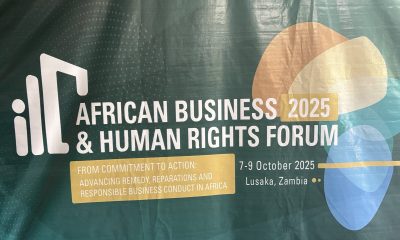
 MEDIA FOR CHANGE NETWORK2 weeks ago
MEDIA FOR CHANGE NETWORK2 weeks ago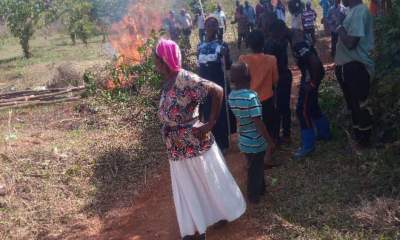
 MEDIA FOR CHANGE NETWORK7 days ago
MEDIA FOR CHANGE NETWORK7 days ago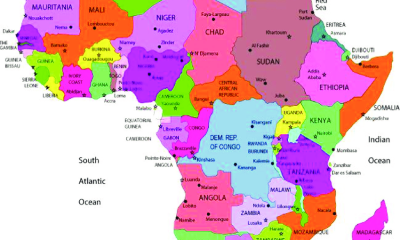
 MEDIA FOR CHANGE NETWORK2 weeks ago
MEDIA FOR CHANGE NETWORK2 weeks ago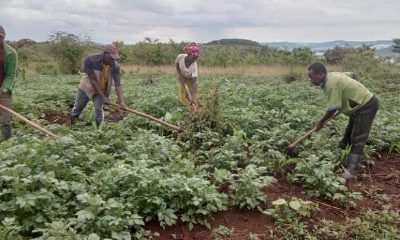
 MEDIA FOR CHANGE NETWORK2 weeks ago
MEDIA FOR CHANGE NETWORK2 weeks ago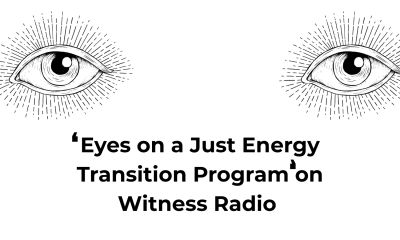
 MEDIA FOR CHANGE NETWORK5 days ago
MEDIA FOR CHANGE NETWORK5 days ago
 MEDIA FOR CHANGE NETWORK2 weeks ago
MEDIA FOR CHANGE NETWORK2 weeks ago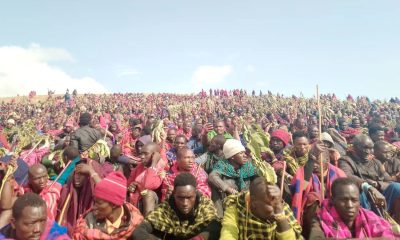
 NGO WORK2 weeks ago
NGO WORK2 weeks ago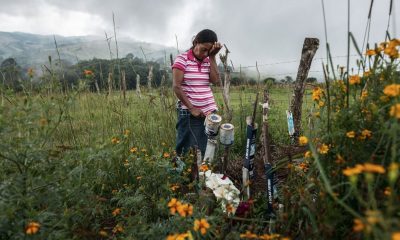
 NGO WORK2 weeks ago
NGO WORK2 weeks ago


